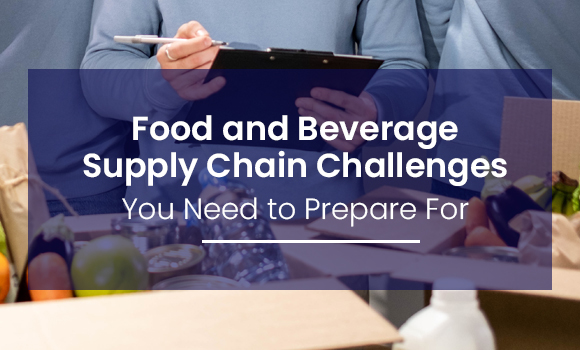The food & beverage industry is one of the biggest contributors to the Philippine economy. It makes up about half of the nation’s manufacturing sector and contributes an estimated 23-24% of the country’s GDP. In 2022, it generated a gross value of around 240 billion pesos.
There is a continuous need for safe food and beverage. Along with that is the increase in shipping demand that poses challenges to the food and beverage supply chain. If you are in this industry, you have to ensure that the demands of the consumers are still met no matter what comes your way.
Food and Beverage Supply Chain Challenges
Poor Communication
Good communication processes should not be overlooked within the food and beverage industry.. Technology has already brought improvements in how food supply chain partners can communicate. However, there are times when transportation and communication technologies caused errors too.
Communication problems may still occur especially with the involvement of various people and companies throughout the supply chain. Lapses in communication could lead to delays in the movement of products. Worst, it may cause food product spoilage. Due to its serious implications, smooth communication between stakeholders must be established.
Food Shipping Traceability
Traceability is now a requirement especially now that there is a great concern for food safety. Compliance with food safety standards has never been more important with the increasing awareness among consumers about the dangers of food contamination.
The food and beverage supply chain plays a role in the control of foodborne illnesses. One way to prevent its onset is through traceability. It provides an overview of every aspect of the food industry through the data it generates.
Food Fraud
Counterfeit products have also reached the food and beverage industry. Food fraud comes in different forms. Examples of these include padding the size of food products to make them look larger or weigh more, using another ingredient instead of the declared one, and even using food to move illegal products.
Though these issues may not affect all countries, they impact the global supply chain to control the problem.
Lack of Transparency
Withholding facts or non-disclosure of facts get in the way of the food and beverage supply chain. Mistakes or errors that are being covered up could lead to serious problems such as food poisoning. Documentation of critical data must be done especially those that affect food quality. Temperature, humidity readings, cargo locations, and inspections are some of the data that must be communicated and reported/
Changing Regulations
Regulations continue to change. While they are intended to optimize processes and protect the consumers, some lapses could lead to untoward problems especially when they cause delays and compromise the quality of food products.
Overcome Challenges through Logistics
There are factors that contribute to the manufacture and delivery of high-quality and safe products. It starts with the selection of the best raw materials up to the production and delivery of finished goods. Food and beverages must remain intact throughout the process and while packaging plays a key role in their integrity, a reliable logistics company should not be overlooked too.
Find the right partner that can help you overcome the most common food and beverage supply chain challenges. Worklink Services, Inc. has been working with companies from various industries to ensure that the movement of food and beverage would be successful from start to finish.


